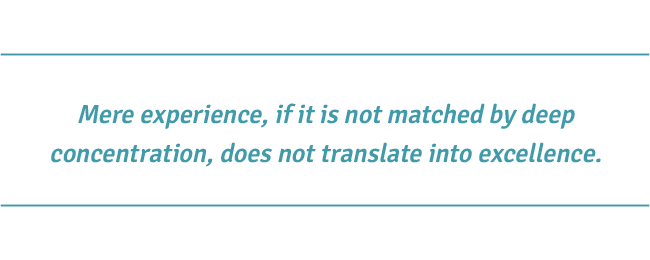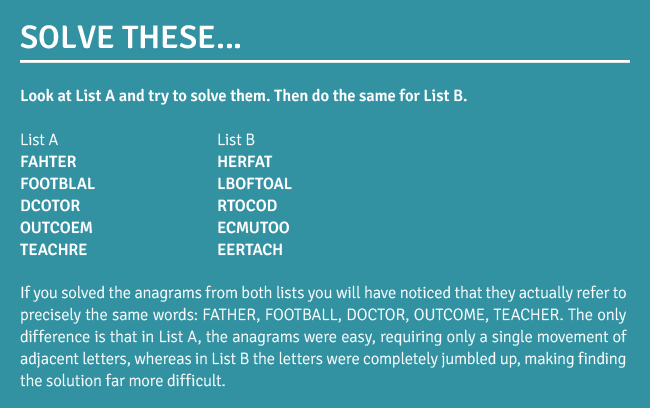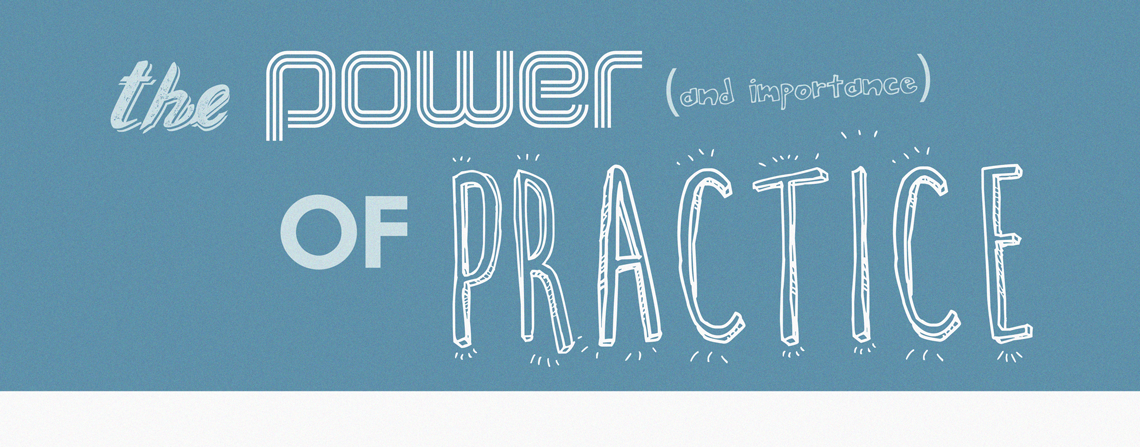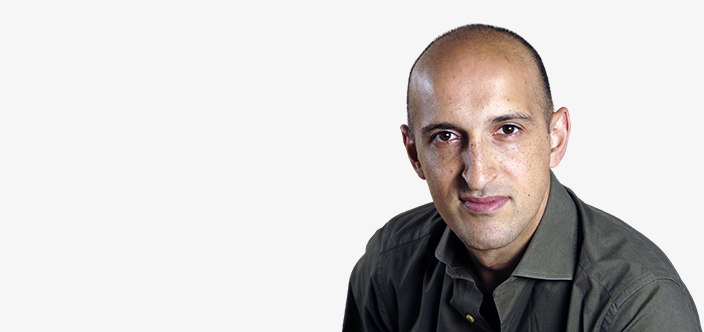Matthew Syed, Commonwealth champion, two-time Olympian and award-winning journalist gives his input into the talent vs. practice debate with this extract from his best-selling book ‘Bounce’.
How many hours have you spent driving your car? I spent a little time working this out recently and figured that I have averaged 12,000 miles a year since passing my driving test more than twenty-two years ago, adding up to 264,000 miles in total. At an average speed of around thirty miles an hour, that means I have spent almost precisely ten thousand hours at the wheel.
But I am not a world-class driver. In fact, I probably have more bad habits now, and less knowledge of the rules of the road, than when I passed my test.
Haven’t I attempted to explain expertise in terms of the number of hours practised? Well, not quite.
What happens when I drive my car? I am certainly clocking up countless hours at the wheel, but does this constitute the acquisition of knowledge? It is not as if I am straining to improve. Rather, my mind is on other things: I am figuring out what to make for dinner; I am speaking to my passenger; I am listening to the radio and strumming my fingers against the steering wheel. I am, in effect, driving on autopilot.
This may sound like an extreme example, but it applies (to only a slightly lesser extent) to a surprising number of us. We do our jobs, but often with our minds absent — partially or wholly — from what we are doing. We go through the motions.
This is why (as dozens of studies have shown) length of time in many occupations is only weakly related to performance.

Of course, some jobs demand deep application. Fire-fighters and nurses are constantly challenged to operate at the upper limit of their powers: if they don’t, people die. Ambling along on autopilot is not an option, which is why number of years in the job is strongly correlated with expertise. Those who have been on the front line for ten years plus are, invariably, world-class in their field.
The same is true of the cashiers. The constant requirement to make accurate calculations, and the fact that errors are immediately revealed by the company accounts, mean that cashiers are continually challenged to build accuracy and speed.
But in, many jobs, and in most sports, it is possible to clock up endless hours without improving at all. I play tennis every Sunday — an amiable game with a friend before heading over to the club canteen for a hot sandwich.
It is fun and sociable, but it has nothing to do with the kind of practice undertaken by aspiring Grand Slam champions. I have not improved in five years. Why? Because I have been cruising along on autopilot.
Take a look at the anagrams in the box on the below. Here’s the curious thing — when researchers had participants work on lists of anagrams of the List A kind they found that, when later questioned, the participants were not very good at remembering the words. Even though they had successfully solved the anagrams, their recall was poor. When participants worked on more difficult anagrams, however, their recall soared.
Why such a dramatic difference? Because with difficult anagrams the jumble of letters force you to do something other than breeze through. You have to stop for a few moments and think; you have to deepen your concentration and engage with the anagram to figure out what it is. In short, you are forced to click out of autopilot. In those few seconds of striving, the word is imprinted on your memory.

This example, taken from the work of psychologist S.W. Tyler, neatly emphasises the power of practice when it is challenging rather than nice and easy. ‘When most people practise, they focus on the things they can do effortlessly,’ Ericsson1 has said. ‘Expert practice is different. It entails considerable and sustained efforts to do something you can’t do well – or even at all. Research across domains shows that it is only by working at what you can’t do that you turn into the expert you want to become.’
So far, the focus in this book has been on the quantity of practice required to reach the top, and we’ve seen that it’s a staggering amount of time, stretching for a period of at least ten years. But now we are going to dig down into an even more vital facet of expertise, the quality of practice: the specialised learning used by top performers to attain master status and the deep concentration that is needed during each of those ten thousand hours to make them count.
Ericsson calls it ‘deliberate practice’, to distinguish it from what most of the rest of us get up to. I am going to call it purposeful practice. Why? Because the practice sessions of aspiring champions have a specific and never-changing purpose: progress. Every second of every minute of every hour, the goal is to extend one’s mind and body, to push oneself beyond the outer limits of one’s capacities, to engage so deeply in the task that one leaves the training session, literally, a changed person.
Think back to the violinists at the music academy in Berlin. The top performers had not practised for more hours per se than the lesser violinists. Rather, the difference was in the number of hours devoted to purposeful practice — the kind of practice that the violinists themselves said was the most conducive to improvement. The top performers had pushed themselves harder for longer. The others had not. That was the crucial difference. SR


